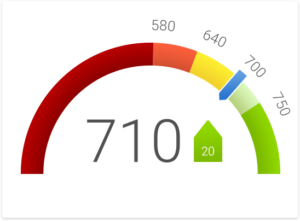Dear Liz: I have very low net worth and just inherited $500,000 from a cousin’s annuity. My net worth includes a $400,000 house with a $290,000 mortgage at 3.75%, IRA accounts of $65,000 and savings of $90,000. I also have a pension from which I receive $50,000 annually and from which our health insurance is paid. My husband is 72 and receives $6,000 annually from Social Security. I will turn 70 in a few months and will begin taking Social Security and tapping my IRAs. I have very little debt. What is the safest thing to do with this inheritance?
Answer: That depends on how you define “safe.”
Investments that don’t put your principal at risk typically offer returns that don’t beat inflation over time. That means your buying power is eroded. At 70, you may not think you need to worry much about inflation. But your life expectancy as a woman in the U.S. is 16.57 more years. About one-third of women your age will make it to age 90.
That doesn’t mean you have to take investment risk with this money by buying stocks, which are the one asset class that consistently outpaces inflation. But you’d be smart to have a fee-only financial planner take a look at your situation to make sure you’re investing appropriately, based on your goals.
And it’s your goal for this money that will help determine how to invest it. If you want the money to be readily available and safe from investment risk, then you could put it in an FDIC-insured, high-yield savings account paying 2% or so. Just make sure you don’t exceed FDIC limits, which typically cap insurance coverage at $250,000 per depositor, per bank. (You can stretch that coverage if you put the money in different “ownership categories,” such as individual, joint, retirement and trust accounts.) If you don’t expect to need the money for many years, investing at least some of it in bonds or stocks may be appropriate.
Also, a small reality check: Your net worth before the inheritance was $265,000, based on the figures you provided. That’s more than most people in your age bracket. Households headed by people ages 65 to 74 had a median net worth of about $224,000 in 2016, according to the Federal Reserve’s latest Survey of Consumer Finances. That’s not to say you’re rich, but you do have more than most of your peers — especially now.
 Today’s top story: 6 types of conventional loans all home buyers should know. Also in the news: How your credit score can save you money, why you need to verify your Equifax settlement claim, and why you need to be careful when deciding to claim Social Security based on break-even calculations.
Today’s top story: 6 types of conventional loans all home buyers should know. Also in the news: How your credit score can save you money, why you need to verify your Equifax settlement claim, and why you need to be careful when deciding to claim Social Security based on break-even calculations. Today’s top story: How student loan fees work and what they cost. Also in the news: Making renting work for your financial goals, what millennials get wrong about Social Security, and does the new Apple credit card live up to the hype?
Today’s top story: How student loan fees work and what they cost. Also in the news: Making renting work for your financial goals, what millennials get wrong about Social Security, and does the new Apple credit card live up to the hype?